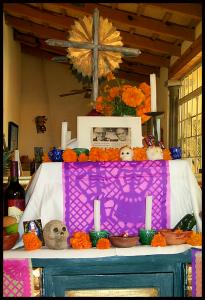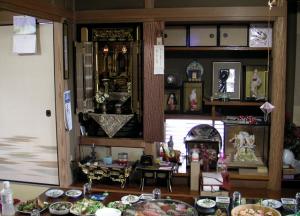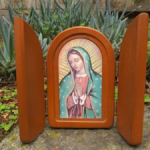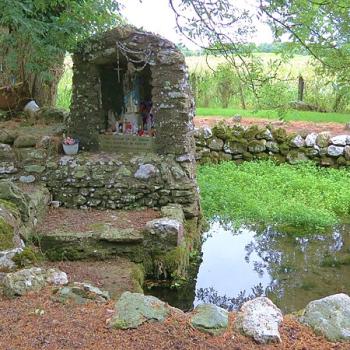
As the wheel turns to Samhain, I find myself facing what was once my favorite time of year with conflicting feelings once again. If you ask Christians which time of year is especially difficult for them, many mention Christmas. Often the recent loss of a loved one is felt especially keenly at that time of family gatherings and religious celebrations. Alternately, long established family dysfunctions erupt (again) during the holiday and lead to more hurt feelings than usual. For me personally, and probably for many Pagans, Samhain is the time of year that is most difficult for similar, although slightly different reasons. It can be incredibly painful to honor our Beloved Dead at the Ancestor Table when one of them has recently joined their number. It can also be upsetting or troubling when the Beloved Dead include those who were not so easily beloved while they were still here among us. It’s so much easier to honor the dead whose foibles and misdeeds were unknown to us, and when we’ve no personal history of difficult family interactions with them.
This year is especially hard for me. My father passed in January and every time I think the grief has faded it rolls over me again. He was completely ready to go and I prayed daily for an end to his suffering. His death was a relief, but still, the grieving process has been long. I will find some comfort in honoring him at the Ancestor Table this year, but… I have said many prayers since his passing, hoping that he has found in death the peace that so eluded him in life, and that his next life will be more kind to him. This is the time to let him know that those he left behind are saddened but surviving, and to hopefully nudge him on to the Next Great Adventure, should he still be lingering. And so, I light a nightly candle for him and pray, “May your next life treat you more gently than this one did. May you find peace.”

Meanwhile, I have often brooded over how to make peace with some of the specters from my childhood. I aged out of foster care, so suffice it to say that I have experienced perhaps more than my fair share of family dysfunction. The person with whom I had the most troubled relationship with was my paternal grandmother, who raised me from the age of four until I was sixteen. I’ve struggled for years to find a way to honor her at the Ancestor Table in good spirits and with honesty and integrity. We didn’t part on good terms, which was not my choice. It took quite a while to work through the anger of discovering that she chose to spend her last year on earth with us at odds, rather than using that time to find some closure in our relationship and for her and her great grandchildren to spend more time together before the end. How sad to make that decision, to go into the Next Great Adventure with that cloud hanging over you? I have finally, finally come to feel compassion for her, that this was the choice she felt she had to make for all of us. This year I have added her to the same ritual that I have been saying for my father, “May your next life treat you more gently than this one did. May you find peace.”

No Right Way to Greive
There is no right way to grieve; there is no right way to heal from childhood trauma. If you are experiencing a difficult time this Samhain, please know you are not alone. I am not one who thinks that forgiveness is the answer for everything. That is a Christian concept and while it works for many, it’s not a solution for me personally. I will gladly offer forgiveness when I see someone trying to make amends or recognizing that there is something amiss that needs to be addressed. It is almost impossible to do this once the other party has joined the Ancestors, however. I think healthy anger has its place in the healing process, but there is a next step that eventually needs to happen for one to move on. For me, that step involves compassion rather than forgiveness. This year, being able to authentically welcome my difficult Ancestor to the table at Samhain is a sign of healing and of personal growth. My prayer as I finish lighting my candle for this time of year concludes with, “May all those who are lost find their way, may all those who are troubled find peace.” And so I pray not only for those who have gone before, but for those who are still on this side of the veil and struggling themselves. May you find peace.
Author Bio:
Today’s guest author is Raven Reed Starr, who writes this about herself: As a pagan minister, my goal is to create rituals or experiences that support the spiritual and emotional realities and needs of modern pagans, while still remaining rooted in the ancient traditions on which modern paganism has flourished. As a Unitarian Universalist, I am especially passionate about creating pagan rituals that reflect our UU values, and using them as a way to educate others about our Principles and Sources when possible.

















